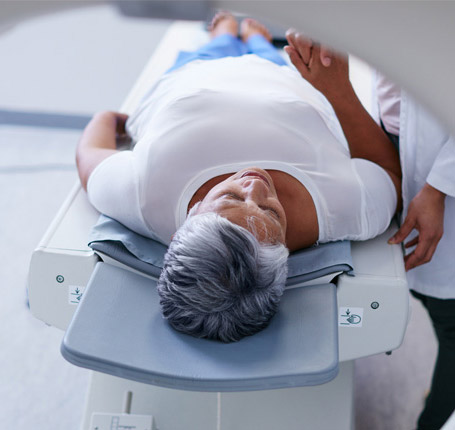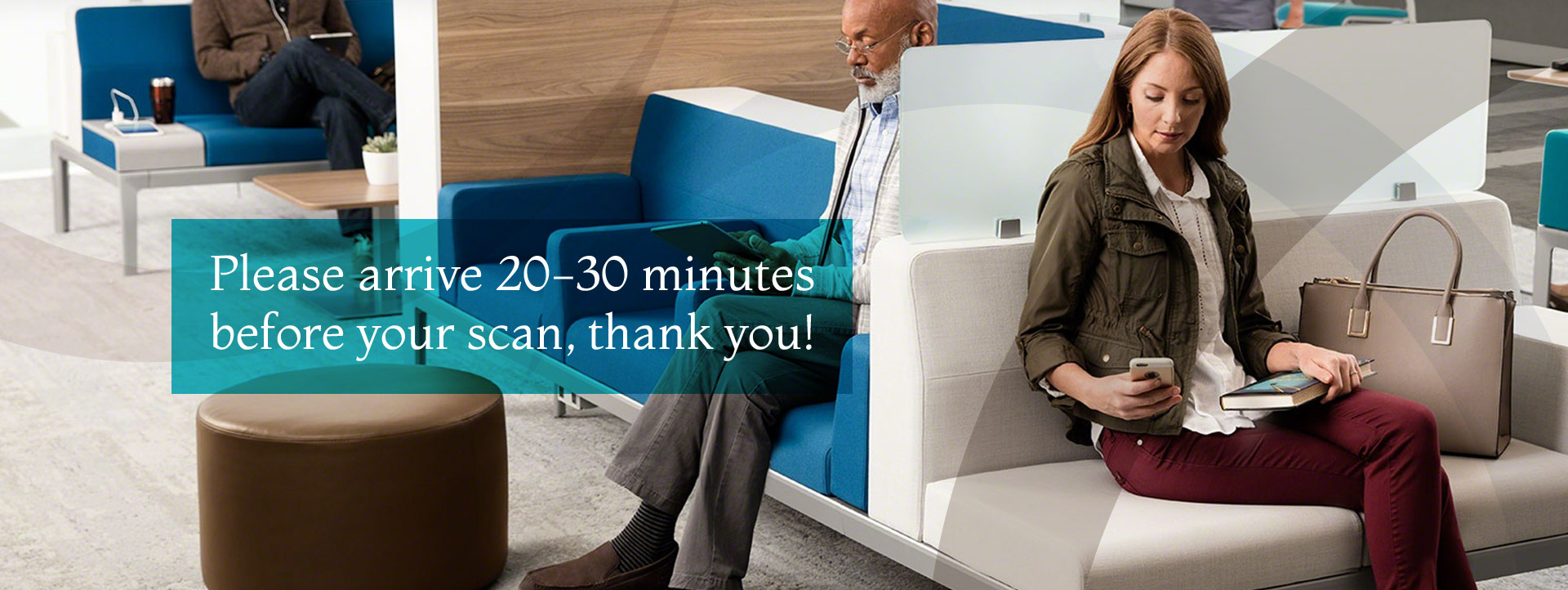
PET CT INTERNATIONAL
We are pleased to offer services of the first, state of the art, hybrid PET/CT scanner in The Bahamas.
With our skilled professional team of, radiologist, technologists and physicians, we offer the most current, evidence based medical technology to assist in diagnosis and management of a host of medical issues.
PET/CT is a diagnostic imaging tool that utilizes state-of-the-art software to combine images from a PET scanner and a CT scanner. This cutting edge technology allows physicians to accurately pinpoint potentially cancerous lesions in the body, enabling them to diagnose, stage, and treat many forms of cancers. PET/CT can often identify lesions before other imaging modalities.
While PET/CT is an important tool used for patients with known or suspected cancer, it is also very helpful for patients with certain neurological diseases such as Alzheimer’s.
PET/CT allows physicians to:
- Accurately stage cancer
- Monitor response to treatment
- Precisely target radiation treatments
- Detect early recurrences
- Assist in the diagnosis and treatment of neurological disorders:-for epilepsy to determine the precise location for surgery, in Parkinson’s Disease to assist physicians in the diagnosis of movement disorders, to detect signs of Alzheimer’s
- Determine what heart tissue is still alive following a suspected heart attack or to predict the success of an angioplasty (balloon) or bypass surgery
- We provide accurate, quality testing, with reporting/results received within 24-72 hours.
Preparing for your PET/CT EXAM
- Do not engage in strenuous activities, heavy lifting or exercising for 24 hours before your exam. A lot of muscle activity can interfere with the results of the exam.
- Do not take insulin or your diabetes medicine on the morning of your exam. We will schedule an early morning appointment for you and you can take your diabetes medicine after your scan.
- You may take other medicines (only with water) on the day of the exam, unless your doctor tells you not to take them.
- Do not take medicines that contain sugar, such as cough syrup or throat lozenges.
- Do not eat or drink anything except water for at least six hours before the exam. Do not chew gum or candy. Please eat a low carbohydrate diet for 24 hours before the exam.
- Drink plenty of water the day before the exam.
- Do not drink alcohol, caffeinated beverages or use nicotine products.
- Oncology treatments may affect the results of the exam. Please tell the technologist if you received radiation or chemotherapy treatments.
- Please bring all prior examination films or studies, (CT, MRI, Ultrasound, PET, etc.) noton the day of your exam.
- Wear warm, comfortable clothing free of metal zippers, snaps, etc. You may bring a change of clothing and a pair of warm socks.
- Leave your valuables at home. You must remove all jewelry, hair pins and clips before the exam.
- If you are pregnant or breast feeding, please tell your doctor before the exam.
- We cannot scan patients weighing more than 400 pounds on our stationary unit.
- If you had an allergic reaction to a contrast agent in the past, please tell our staff.
Note: We prepare a special radiopharmaceutical FDG (tracer) for each exam. If you cannot keep your appointment, please notify us at least 24 hours in advance to avoid being charged for the FDG dose.
PET/CT Scan for Diabetic Patients and Patients on Insulin
Your doctor ordered an exam for you called a PET/CT scan. This type of exam uses a radioactive tracer that mimics the effects of your blood sugar. People with diabetes and/or on insulin have trouble processing blood sugar. This means you need to follow special instructions for your PET/CT scan.
Please carefully read the following information, and follow all of the instructions. Keeping your blood sugar under control helps us obtain the best information for this type of exam.
- As a general rule, all patients should fast and have a blood sugar level between 70 – 200. If your blood sugar level is not within this range, we cannot do the scan and we will have to reschedule your appointment.
- Do not allow your blood sugar to drop below 70.
- Do not take insulin or your diabetes medicine on the morning of your exam. We will schedule an early morning appointment for you and you can take your diabetes medicine after your scan.
- You may take other medicines (only with water) on the day of the exam, unless your doctor tells you not to take them.
- Do not take medicines that contain sugar, such as cough syrup or throat lozenges.
- Do not eat or drink anything except water for at least six hours before the exam. Do not chew gum or candy.
- Please eat a low carbohydrate diet for 24 hours before the exam.
- Drink plenty of water the day before the exam.
- Do not drink alcohol, caffeinated beverages or use nicotine products
Frequently Asked Questions
What is Positron Emission Tomography – Computed Tomography (PET/CT) Scanning?
Positron emission tomography, also called PET imaging or a PET scan, is a type of nuclear medicine imaging.
Nuclear medicine is a branch of medical imaging that uses small amounts of radioactive material to diagnose and determine the severity of or treat a variety of diseases, including many types of cancers, heart disease, gastrointestinal, endocrine, neurological disorders and other abnormalities within the body. Because nuclear medicine procedures are able to pinpoint molecular activity within the body, they offer the potential to identify disease in its earliest stages as well as a patient’s immediate response to therapeutic interventions.
Nuclear medicine imaging procedures are NONINVASIVE and, with the exception of intravenous injections, are usually painless medical tests that help physicians diagnose and evaluate medical conditions. These imaging scans use radioactive materials called radiopharmaceuticals or radiotracers
How does PET/CT and work?
A PET/CT (Positron Emission Tomography) is a non-invasive diagnostic imaging procedure that produces images of small changes in cellular metabolism. A very small amount of radioactive material, tracer (radionuclide or radioisotope), is injected into a vein.
The tracer is tagged to a form of sugar that is used for energy by all cells in the body. Areas of abnormally high uptake of the tracer appear brighter on the scan. This is why it is important to keep your blood sugar levels at an acceptable level. If your blood sugar levels
are high, the PET/CT results will not be precise and the scan will not be as effective.
As a general rule, all patients should fast and have a blood sugar level between 70 – 200. If your blood sugar level is not within this range, we cannot do the scan and we will have to reschedule your appointment. Do not allow your blood sugar to drop below 70.
We use PET/CT scans to help us diagnose many types of cancer, coronary artery disease and some neurological disorders.
How is the procedure performed?
Nuclear medicine imaging is usually performed on an outpatient basis, but is often performed on hospitalized patients as well.
You will be positioned on an examination table. If necessary, a nurse or technologist will insert an intravenous (IV) catheter into a vein in your hand or arm.
Depending on the type of nuclear medicine exam you are undergoing, the dose of radiotracer is then injected intravenously, swallowed or inhaled as a gas.
Typically, it will take approximately 60 minutes for the radiotracer to travel through your body and to be absorbed by the organ or tissue being studied. You will be asked to rest quietly, avoiding movement and talking.
You may be asked to drink some contrast material that will localize in the intestines and help the radiologist interpreting the study.
You will then be moved into the PET/CT scanner and the imaging will begin. You will need to remain still during imaging. The CT exam will be done first, followed by the PET scan. On occasion, a second CT scan with intravenous contrast will follow the PET scan. The actual CT scanning takes less than two minutes. The PET scan takes 20-30 minutes.
Total scanning time is approximately 30 minutes.
Depending on which organ or tissue is being examined, additional tests involving other tracers or drugs may be used, which could lengthen the procedure time to three hours. For example, if you are being examined for heart disease, you may undergo a PET scan both before and after exercising or before and after receiving intravenous medication that increases blood flow to the heart.
When the examination is completed, you may be asked to wait until the technologist checks the images in case additional images are needed. Occasionally, more images are obtained for clarification or better visualization of certain areas or structures. The need for additional images does not necessarily mean there was a problem with the exam or that something abnormal was found, and should not be a cause of concern for you.
If you had an intravenous line inserted for the procedure, it will usually be removed unless you are scheduled for an additional procedure that same day that requires an intravenous line.
What will I experience during and after the procedure?
Except for intravenous injections, most nuclear medicine procedures are painless and are rarely associated with significant discomfort or side effects.
When the radiotracer is given intravenously, you will feel a slight pin prick when the needle is inserted into your vein for the intravenous line. When the radioactive material is injected into your arm, you may feel a cold sensation moving up your arm, but there are generally no other side effects.
When swallowed, the radiotracer has little or no taste. When inhaled, you should feel no differently than when breathing room air or holding your breath.
With some procedures, a catheter may be placed into your bladder, which may cause temporary discomfort.
It is important that you remain still while the images are being recorded. Though nuclear imaging itself causes no pain, there may be some discomfort from having to remain still or to stay in one particular position during imaging.
If you are claustrophobic, you may feel some anxiety while you are being scanned.
Unless your physician tells you otherwise, you may resume your normal activities after your nuclear medicine scan. If any special instructions are necessary, you will be informed by a technologist, nurse or physician before you leave the nuclear medicine department.
Through the natural process of radioactive decay, the small amount of radiotracer in your body will lose its radioactivity over time. It may also pass out of your body through your urine or stool during the first few hours or days following the test. You should also drink plenty of water to help flush the radioactive material out of your body as instructed by the nuclear medicine personnel.
What to expect after the exam:
Unless you have other exam appointments, you may leave after the scan. Remember to take your insulin or diabetes medicine.
If you took anxiety medicine before the scan, you must have a family member or friend drive you home.
You may begin your normal activities.
Drink plenty of water and other fluids to help flush the tracer from your body.
When do I get my PET/CT results?
The radiologist reads the results of your scan, writes a report, and forwards the report to your doctor usually within 24-72 hours.
Note:
We prepare a special radiopharmaceutical FDG (tracer) for each exam. If you cannot keep your appointment, please notify us at least 24 hours in advance to avoid being charged for the tracer.



